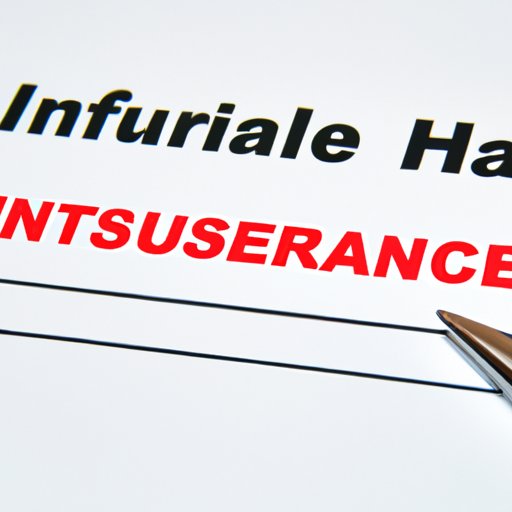
Can I Cancel Health Insurance Anytime? Understanding the Consequences, Pros and Cons, Alternatives, and Penalties
Health insurance is a crucial aspect of maintaining good health and peace of mind. But what happens when you find yourself unable to keep your health insurance policy? Can you cancel your health insurance anytime, or do certain consequences and penalties come with it?
Understanding the Consequences: Canceling Your Health Insurance at Anytime
Canceling health insurance mid-year can have serious consequences, leaving you uninsured during emergencies or unexpected health issues. When you cancel without finding an alternative plan or waiting for the next enrollment period, you could be exposing yourself, and possibly your family, to paying exorbitant medical bills or even force you to avoid medical attention entirely, potentially compromising your health. In some cases, you may be limited for a period of time with medical insurances offered to you by your employer.
While there are circumstances where canceling your health insurance may become necessary, the decision to do so should not be taken lightly. Before making this decision, it is important to weigh all the pros and cons.
The Pros and Cons of Canceling Your Health Insurance Mid-Year
There are a few pros and cons to consider when canceling health insurance before the end of the year. Some advantages include more flexibility in choosing an alternative health insurance plan that would better suit your needs or budget, or if you are unable to afford your current plan. Additionally, there may be other health coverage available to you based on your specific situation, such as Medicaid, COBRA, and short-term health insurance plans. Canceling your health insurance may also be a viable option if you’re no longer eligible for that plan, for instance, you can’t work full time or your employer has stopped offering health insurance.
On the other hand, the disadvantages to canceling mid-year can be significant. These include being exposed to very high medical bills, and it is important to take note that pre-existing conditions may not be covered at the same affordable rates once you get new coverage. Canceling health insurance can also result in loss of coverage for important preventative care, which can be costly in the long run. Moreover, many insurers offer a grace period for payments, so it’s important to speak with your insurer before cancelling to learn if there are other options available.
Alternatives to Canceling Your Health Insurance Mid-Year
If you are considering canceling health insurance mid-year, you might find alternatives that could be just as practical and cost-effective. One such alternative is seeking out a short-term or catastrophic health insurance plan; however, it is important to understand that such plans offer limited coverage and are typically meant to cover unexpected accidents or emergencies — they do not meet benefits required for comprehensive coverage like preventative care and pre-existing conditions. Another option you may be able to consider is applying for Medicaid under certain circumstances, such as reduced income or disability. A third alternative is reviewing and considering options during special enrollment, typically only available under certain qualifying events; such events may include marriage, loss of employment, or the birth or adoption of a child. Each alternative has its own financial impact, so it’s important to review and compare all options before making a decision.
Ensuring Adequate Coverage: When to Cancel Your Health Insurance and How to Proceed
Once you have weighed the risks and benefits of canceling your health insurance mid-year, if you decide to cancel, it is important to make sure you have adequate coverage. Keep in mind that your employer or insurer may offer other coverage options not previously known to you. It would be best to make sure you are not losing out on something you may find beneficial by taking the time to explore these alternatives. If nothing else, a short-term health plan that can maintain a lower cost and, as a result, be more affordable over the long term.
Understanding Health Insurance Enrollment Penalties: What Happens If You Cancel Your Plan Mid-Year
Penalties for canceling health insurance during the year can be steep. Depending on your circumstances and applicable laws, the penalties can come in various forms, including loss of federal subsidies, increased premiums, or a requirement to pay a penalty. In addition, if you are uninsured for a certain period of time, you may experience difficulty obtaining health insurance in the future due to pre-existing conditions or pre-existing conditions not covered under your new insurance plan.
Conclusion
Canceling your health insurance mid-year can have serious consequences, but sometimes it is necessary for certain reasons. It is important to weigh all the pros and cons, to review all the available alternatives, and to ensure adequate coverage in the unplanned event of a medical emergency. Making an informed decision before canceling your health insurance mid-year can help you to avoid unnecessary expenses, penalties, and the stress of losing important coverage.





